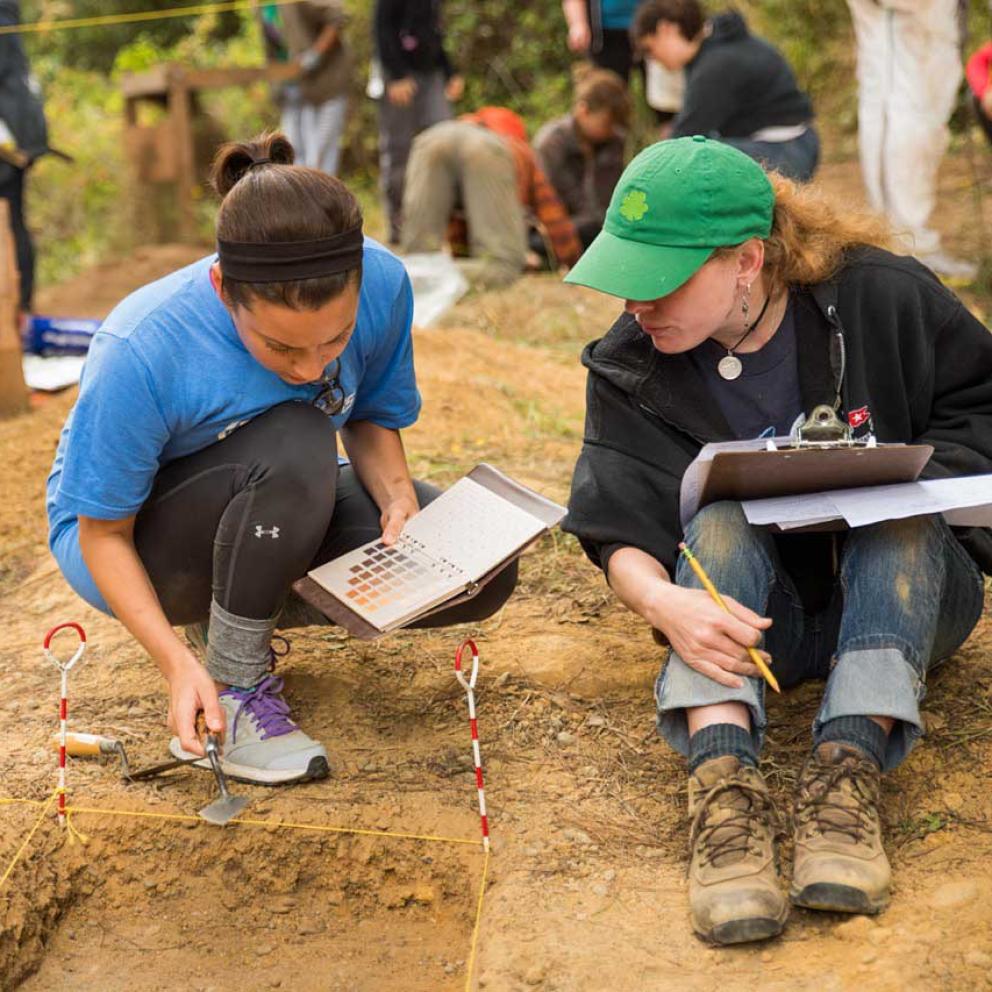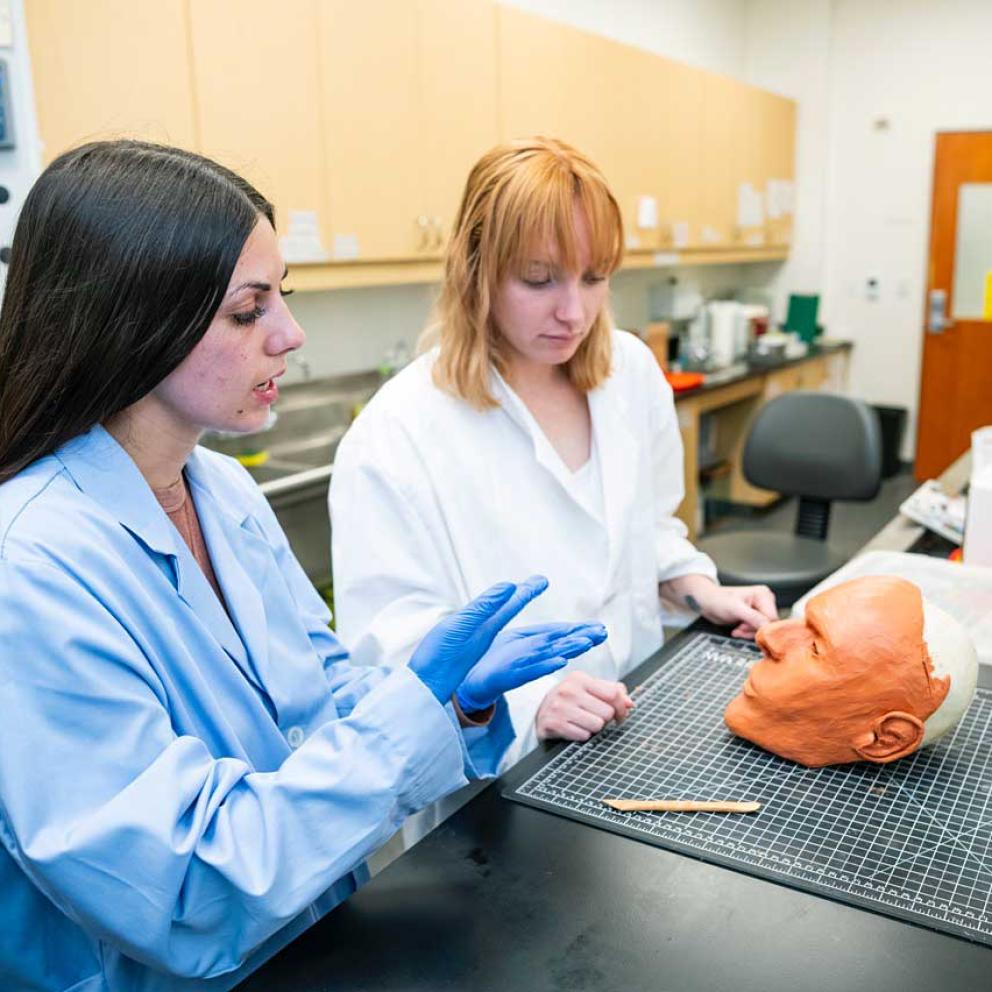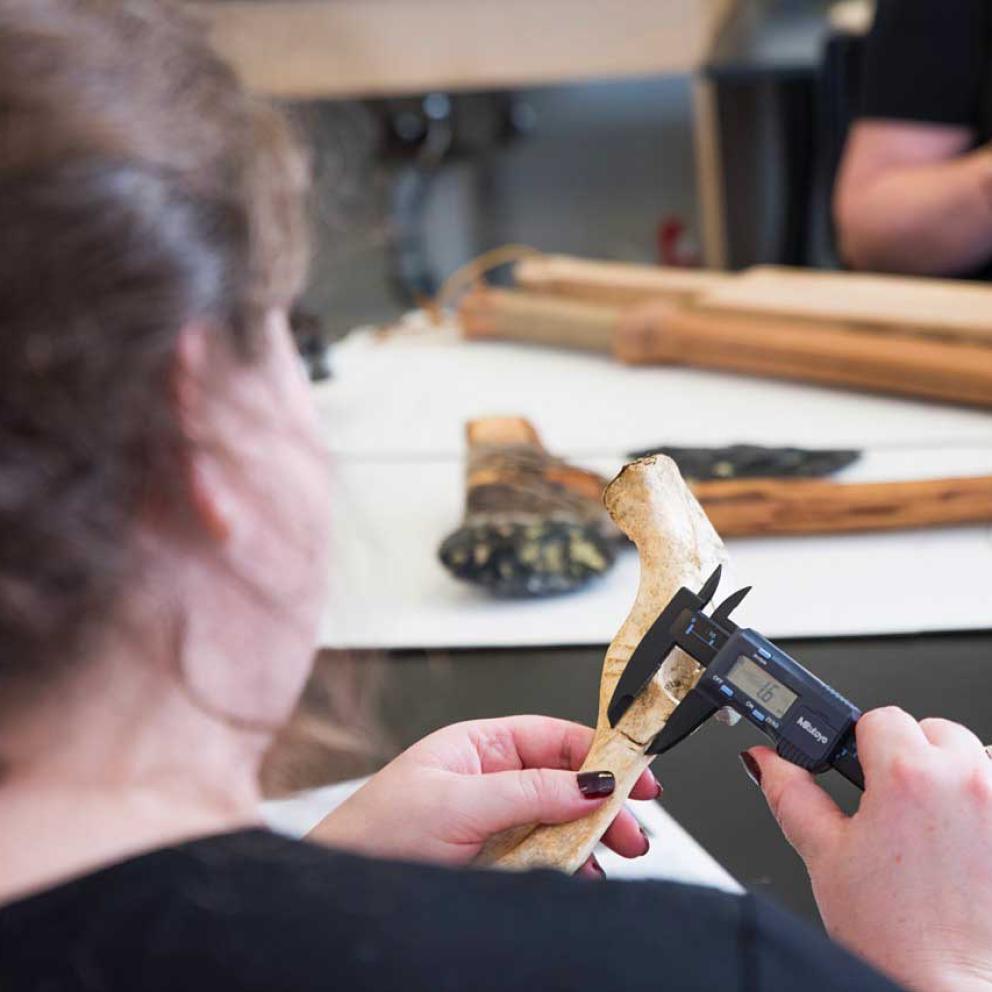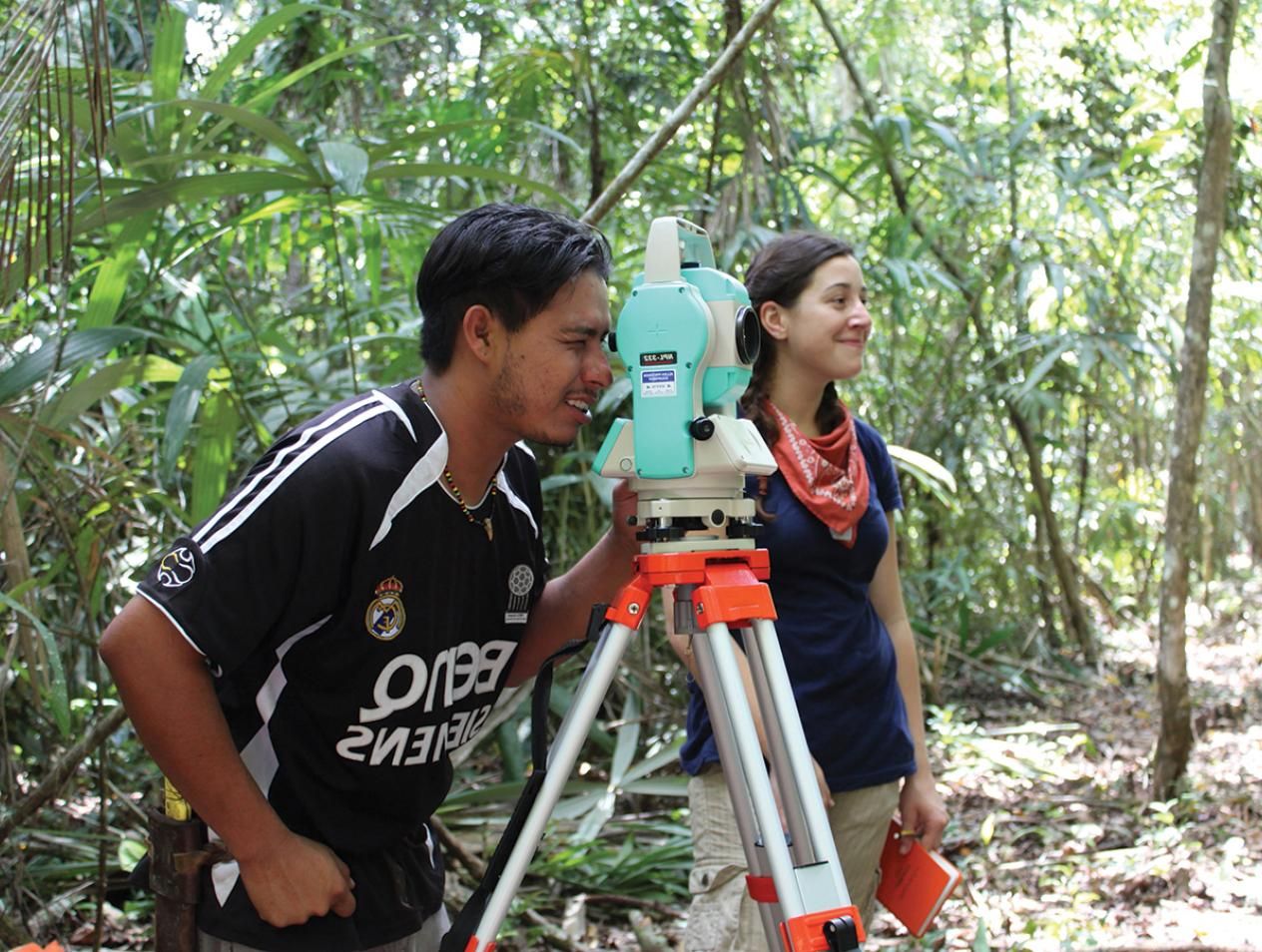Breadcrumb
Department of Anthropology
Anthropology is a holistic science dedicated to the study of human biological and cultural diversity and evolution. It includes the intersecting subfields of archaeology, biological anthropology, sociocultural anthropology, linguistic anthropology, and applied anthropology. Anthropologists integrate methods and theories from across the sciences, arts, and humanities to study the many intriguing facets of humanity across space and time – from the earliest fossil humans to the more recent archaeological record and present-day cultures. Anthropology majors develop useful and marketable life skills that are broadly applicable to multiple career trajectories. Scroll down to learn more about our programs, including:
- Bachelor of Science in Anthropology, with five concentration options
- Master of Arts in Applied Anthropology, fully online or hybrid
- Certificate in Maritime Archaeology, including diving and archaeology
- Certificate in Cultural Resource Management, pending approval
- Minors in Sustainable Food Systems and in Anthropology
- Summer field programs in Belize, Poland, and Macedonia
Degree Programs
Anthropology, B.S.
Anthropology is a holistic science dedicated to the study of human cultural and biological diversity and evolution. Anthropology is unique in that it integrates fields of study that traditionally span multiple disciplines in the sciences, arts, and professional studies.
Program Concentrations: archaeology, biological anthropology, linguistic anthropology, and sociocultural anthropology.
Applied Anthropology, M.A.
The MA in Applied Anthropology is a relevant and flexible program focused on building competitive, marketable skills. Applied anthropology is the application of anthropological perspectives, methods, theories, and practices to human and environmental problems in academic, professional, and global contexts.
Minors & Certificates
Field Programs
Belize Archaeology Field School
The Belize Archaeology Field School involves field survey, excavation at several Maya sites, and laboratory experience working directly with excavated Maya artifacts. Field techniques, lectures on Maya culture history and instruction concerning artifact analysis are provided.
Poland Bioarchaeology Field Program
The Medieval Bioarchaeology Field Program in Żelewo, Poland is a summer field school run jointly by faculty from the University of Szczecin in Poland and other institutions in the US and Poland. The program is run in cooperation with the Slavia Foundation. It is a unique opportunity to excavate and analyze medieval remains as part of a salvage archaeological project due to intensive agriculture and natural processes in the region.
Macedonia Archaeology Project
The Macedonia Archaeology Research Project is an international collaboration between researchers in the US and Macedonia. The project focuses on the Hellenistic, or Macedonian, era and into the Roman conquest…
Cultural Resources Facility
The Cultural Resources Facility (CRF) is one of the largest cultural resources management (CRM) companies in California that is directly associated with a university. The CRF offers students hands-on field, lab, and office training in CRM, a major career area in applied archaeology.
International Field Schools
Our summer programs include the Belize Archaeology Field School, Poland Medieval Bioarchaeology Field School, and Macedonia Archaeology Project, and we encourage exchange programs, enabling students to travel the world and make hands-on, international experiences an integral part of their education.

Internships
Students have the opportunity to receive credit for engaging in resume-building internships as part of Anthropology programs. The Anthropology Department has many opportunities to get involved field and lab projects on and around campus. Anthropology students can also intern with local, national, and international agencies such as museums, tribal historic preservation offices, coroner’s offices, nonprofits, shelters, community action groups, advocacy organizations, zoos, conservation organizations, and more.

Research Facilities & Collections
The Anthropology Department has multiple laboratories, a collections facility, and a simulated archaeological site, which include state-of-the-art technologies. Students and collaborating scientists use these facilities for classes, hands-on training, and to conduct a wide range of innovative research. Anthropology students have presented their findings at professional conferences, co-authored papers in peer-reviewed journals, and won awards and scholarships for their research.

Place-Based Learning Community: People & Planet
As an ANTH freshman, you’ll participate in hands-on activities with your peers before classes even start and in some cases, have the opportunity to live in the same residence halls with your peers. ANTH students will join four other departments for People & Planet, which focuses on learning how sustainability is local and global, while addressing specific case studies in fields like agriculture, clean energy, and climate justice.
Career Options
- Teacher
- College Professor
- Education Administrator
- Researcher
- Writer
- Museum Docent/Curator
- Registered Professional Archaeologist
- Cultural Resources Manager
- Historian, Area Specialist (e.g., Mayanist, Egyptologist)
- Contract Archaeologist
- Heritage Preservation Officer
- Archaeologist with U.S. Forest Service
- Archaeologist with Caltrans
- Zooarchaeologist
- Maritime Archaeologist
- Primatologist (behavior/ecology/conservation)
- Paleoanthropologist
- Forensic Anthropologist
- Bioarchaeologist
- Evolutionary Theorist
- Skeletal Biologist
- Linguistic
- Semantic & Rhetoric Analyst (media, politics...)
- Narrative Analyst
- Translator
- Speech Communities Worker
- Linguistic Pragmatics Fields
- Ethnographer
- Community/International Development Worker
- Advocate
- Social/Environmental Justice Worker
- Medical Anthropologist
- Diplomat
- NGO/Aid Worker
- Civil Rights Worker
- Cultural Consultant






